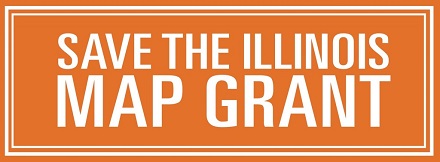How Big Political Decisions Can Impact Our Lives

On February 19, Governor Bruce Rauner of Illinois, vetoed Senate Bill 2043, which included an appropriation of $721 million for the Monetary Award Program (MAP) and community colleges programs. Though a supporter of MAP Grants, Governor Rauner said in his veto that “SB 2043 would exacerbate our budget and cash flow deficits.” Last year, legislators promised 130,000 students and their families that the state would help pay for college so they could achieve a better life, but they have yet to come through.
State of Illinois universities have gone without this state money since July as Republican Governor Rauner and Democrats who control the General Assembly can’t agree on a budget. Though both parties support MAP, partisan politics is the reason MAP isn’t getting funding—and it is causing a lot of students and colleges, including Loyola, to suffer.
Nearly 2400 of Loyola students depend upon their MAP grants to stay enrolled each year. Furthermore, 96 percent of our Arrupe College students are able to attend only thanks to their MAP grants. Last year, Loyola made a decision that allowed for minimal impact on those affected, agreeing to cover MAP grants for the Fall 2015 and Spring 2016 semesters in “good faith,” which means awarding temporary loans to students, pending incoming MAP payments. Several weeks ago, Loyola again decided to continue covering MAP for the following semesters. However, this is costing $10 million, which means tightening current budgets in the different schools.
Governor Rauner points out that “House Bill 4539 and Senate Bill 2349 would appropriate $1.6 billion for higher education programs, while Senate Bill 2789 would authorize the Governor, Comptroller, and Treasurer to identify and implement funding by reallocating funds and reducing spending in other areas.” On the matter of MAP, he explains, “Together, these bills would fund MAP, community college programs, and our public universities, without exploding the deficit or exacerbating the State’s cash flow crisis.” The governor contends, on what appears to be reasonable grounds, that his plan is “far more fiscally responsible – and constitutional – plan for funding higher education.”
Whichever way legislators decide to fund MAP, they are going to need to take action quickly. With no incoming money from the state in nearly seven months, several Illinois universities have nearly depleted their financial reserves, which portends bad news—for the schools who have generously footed MAP insufficiencies, and, for the students whose education, and futures, are vested in them.